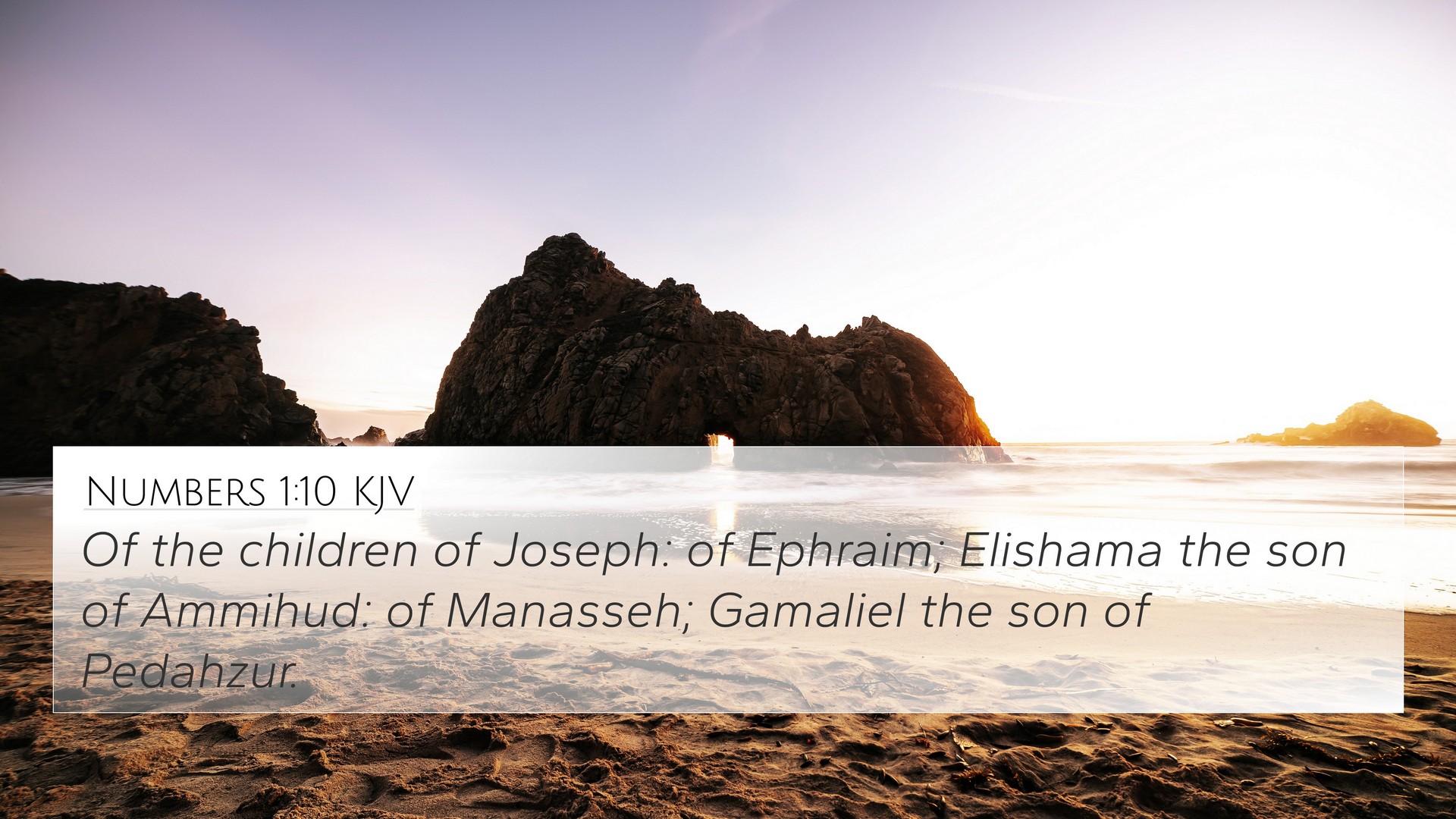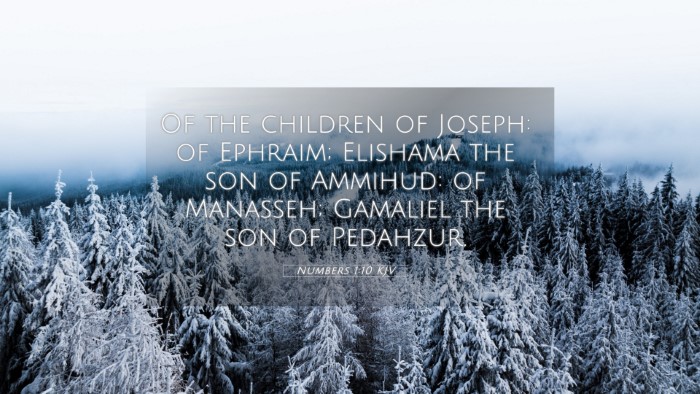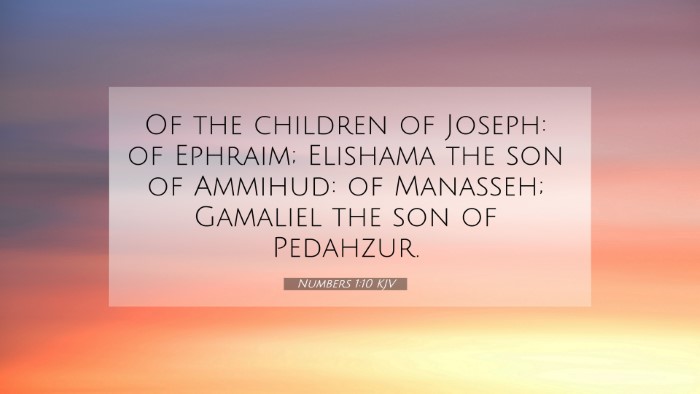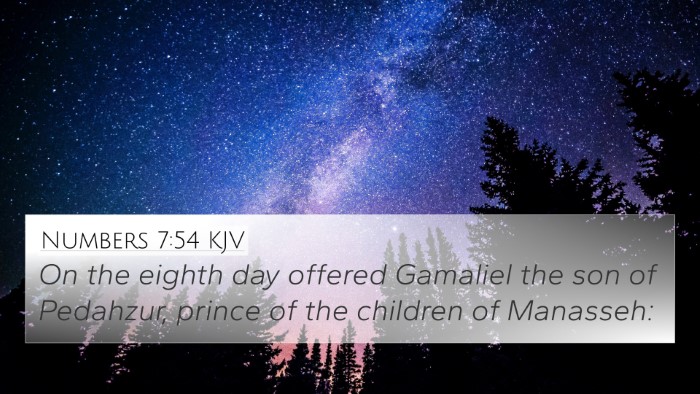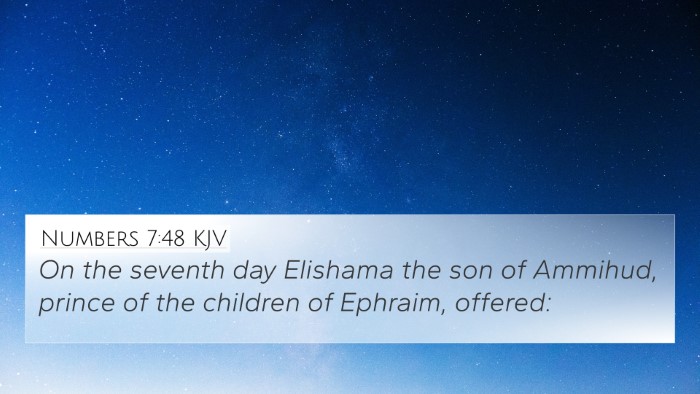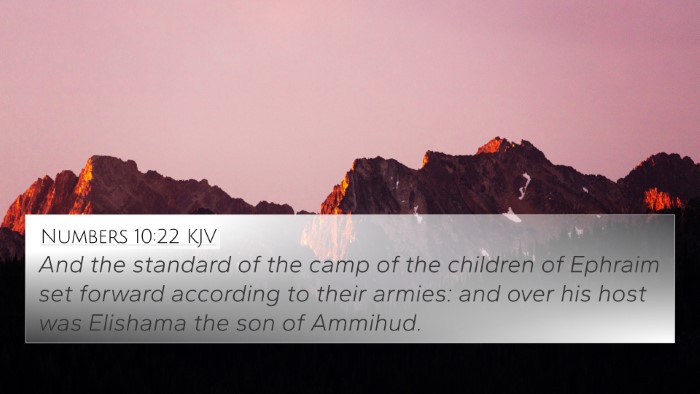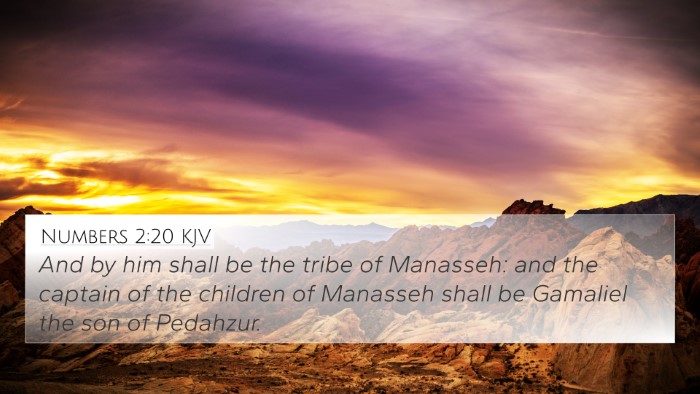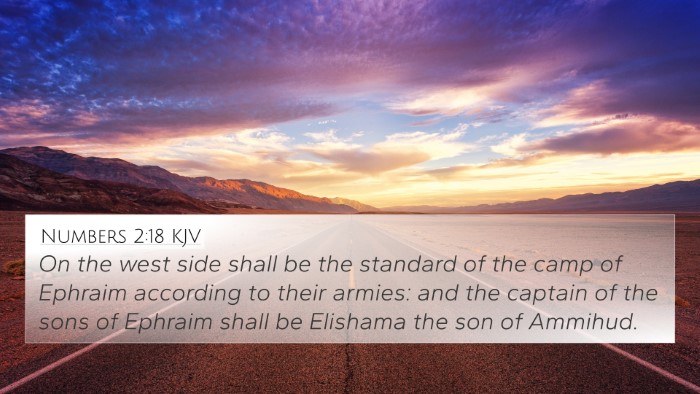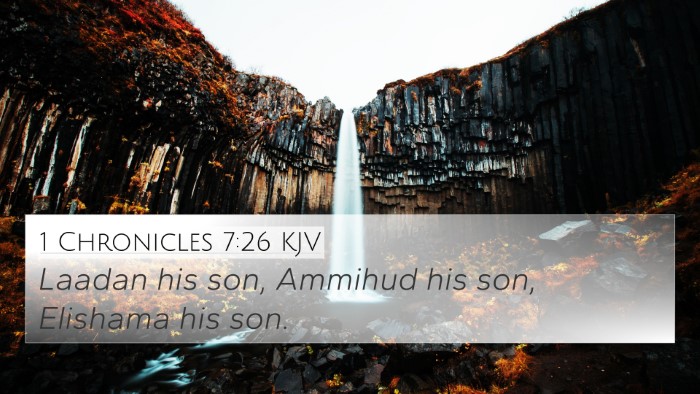Understanding Numbers 1:10
Bible Verse: Numbers 1:10
Verse Text: “And of the sons of Zebulun; Eliab the son of Helon.” (Numbers 1:10, KJV)
Summary of Meaning
The verse from Numbers 1:10 identifies Eliab, the son of Helon, as a leader from the tribe of Zebulun. This verse is part of a larger context where Moses is instructed to take a census of the Israelite people as they prepare to journey to the Promised Land. Eliab's mention indicates the importance of tribal leaders in organizing the people of Israel.
Commentary Insights
- Matthew Henry: Henry emphasizes the role of tribal leaders in the organization of Israel. The naming of Eliab signifies the importance of recognizing individuals in God's plan and how each tribe has its own appointed leader.
- Albert Barnes: Barnes discusses the significance of Eliab's lineage, noting that lineage and family connections played a key role in the identity of the tribes. This establishes a sense of heritage and responsibility among the leaders of Israel.
- Adam Clarke: Clarke notes that Zebulun was one of the tribes that had a vital role during the Israelites' journey. He highlights that gathering these names illustrates God's order and the structured nature of the tribes, emphasizing divine organization in Israel’s community.
Cross-References
This verse can be cross-referenced with several other passages that relate to the organization and leadership within the tribes of Israel:
- Genesis 49:13: Prophecy regarding the future territory of Zebulun.
- Exodus 6:15: Mention of the families of the sons of Jacob, including Zebulun.
- Deuteronomy 33:18-19: Moses' blessing upon the tribe of Zebulun.
- Numbers 2:7: Further details on the placement of the tribes during the encampment.
- Joshua 19:10-16: Description of the territory allotted to the tribe of Zebulun after entering the Promised Land.
- Hebrews 7:14: Reference to the tribe of Judah, contrasting with Zebulun's leadership.
- 1 Chronicles 12:33: Highlights the brave men from Zebulun who joined David.
Thematic Connections
This verse draws upon various themes present throughout the Bible:
- Leadership: The role of leaders in guiding their people toward God's promises.
- Tribal Identity: Each tribe's unique identity and function within the larger community of Israel.
- Divine Organization: The systematic approach God uses to manage His people, emphasizing order and efficiency.
Tools for Bible Cross-Referencing
Understanding Numbers 1:10 within the wider context of Scripture can be enhanced by utilizing various tools for Bible cross-referencing:
- Bible Concordance: A tool that helps trace keywords and their occurrences throughout the Bible.
- Cross-Reference Bible Study: Methods to deepen study by connecting verses that share similar themes or concepts.
- Bible Reference Resources: Materials that serve as guides to navigate through Scripture and identify thematic references.
Inter-Biblical Dialogue
Numbers 1:10 fosters an inter-biblical dialogue by establishing connections between the Old Testament and the heritage of the tribes of Israel, indicating how these historical foundations influence New Testament teachings concerning unity, community, and leadership in the Church.
Conclusion
Numbers 1:10 serves as a pivotal point in understanding the structure and leadership of the Israelites as they prepared for the fulfillment of God's promises. Each name carries weight and significance, illustrating the importance of every individual in the divine plan.
Further Exploration
For deeper insights, consider how this verse relates to:
- Identifying connections between Old and New Testament: Explore how themes of leadership and community play out in the New Testament.
- Comparative study of Pauline epistles: Analyze how Paul addresses unity within the body of Christ and the significance of diverse leadership.
- Crisis of identity within the Church: Assessment of how understanding tribal identities can influence contemporary church structures.
